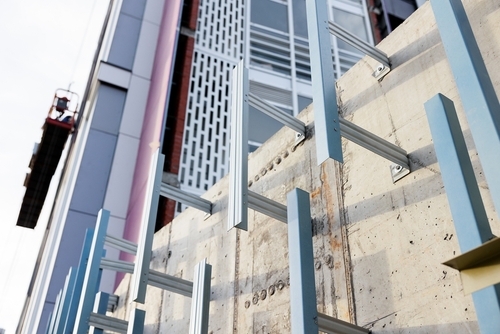
Choosing the Right Cleaning Agents for Cladding: A Practical Approach
27th June 2023
If you own a building with cladding, maintaining its aesthetics is crucial to attract clients and preserve the integrity of the structure. Choosing the right cleaning agents for your cladding is essential to keep it looking good. In this blog, we’ll discuss what factors to consider when choosing cladding cleaning agents and how you can choose the right one for your property. As experts in property care, Just Clean Property Care shares practical tips on keeping your building’s exterior spick and span.
Understanding Cladding Cleaning Agents
When it comes to cleaning cladding surfaces, using the right cleaning agents is crucial. Aluminium and anodised aluminium are common materials used for cladding, and each material requires specific types of cleaners to avoid damage. It’s important to choose a cleaner that is specifically designed for the type of cladding being cleaned in order to achieve optimal results.
Using incorrect or harsh cleaners can lead to irreparable damage on your cladding surfaces. Be sure to consult with professionals who have experience in cleaning different types of cladding surfaces before attempting any DIY methods or purchasing commercial-grade cleaners without first identifying if they are suitable for your particular situation.
What are Cladding Cleaning Agents?
Cladding cleaning agents are specially formulated products that are used to clean cladding surfaces. These cleaners are designed to remove dirt, grime and other types of contaminants from the surface of the cladding without damaging it. Cladding cleaning agents can be made for various types of materials such as aluminium or anodised metals.
The composition and properties of cladding cleaning agents vary depending on their intended use. Most formulations contain detergents, solvents, surfactants and other chemicals that help bind dirt particles together for easy removal. Some cleaners also have acidic or alkaline properties which make them more effective at breaking down stubborn stains on hard-to-clean surfaces like anodised metal. The way these different components work together is what makes each cleaner unique in its own right for a specific type of cladding material or application scenario.
Types of Cladding Cleaning Agents
Chemical-based cleaners are often used to clean cladding surfaces made of metal, stone or composite materials. These cleaners can effectively remove stains and dirt build-up but may not be suitable for certain types of cladding such as anodised aluminium which requires a gentle cleaner. Biodegradable options provide eco-friendly maintenance solutions that are safe for the environment and human health. They are ideal alternatives to chemical-based cleaners but may not be as effective in removing tough stains and grime.
Abrasive cleaners should be used with caution when cleaning cladding surfaces as they can cause damage if not applied correctly. However, they are useful for deep-seated dirt removal in areas where other cleaning agents cannot penetrate. Before using abrasive cleaners, it is important to consult with a professional cleaner who has experience working with different types of cladding materials to avoid causing irreversible damage or discoloration on the surface.
Factors to Consider When Choosing Cladding Cleaning Agents
When choosing cladding cleaning agents, it’s important to consider the type of cladding material being used. Different materials require different cleaning methods and products for effective results. For example, using an acidic cleaner on a delicate surface like limestone can cause damage.
Another crucial factor to consider is the environmental impact of the cleaning agent. Opting for eco-friendly solutions not only helps reduce harm to the environment but also ensures safety for individuals handling these agents. Furthermore, using non-toxic cleaners can help maintain the quality and longevity of your cladding while keeping its appearance pristine over time.
Cladding Material
Understanding the type of cladding material is essential in identifying compatible cleaning agents. Differentiating between natural and synthetic cladding materials will help determine appropriate product selection. For instance, certain cleaning agents may be too harsh for natural stone or wood cladding, causing damage to the surface.
When choosing cleaning agents, it’s also important to consider the finish or texture of the cladding material. Some surfaces may require a gentler approach while others need more abrasive cleaners to remove stubborn grime and dirt buildup without damaging them.
By taking into account each factor when selecting cleaning products for your particular type of cladding material, you can ensure that you are effectively removing dirt and grime while preserving its integrity and longevity. Just Clean Property Care provides expert advice on choosing suitable products based on your specific needs.
Cleaning Method
When it comes to cleaning cladding, choosing the right method is crucial. It’s important to assess potential risks associated with each cleaning method and determine if manual, mechanical or chemical methods are most appropriate for efficient results. However, the chosen cleaning method should also complement the selected cleaning agent in order to achieve maximum effectiveness.
Assessing potential risks associated with each cleaning method before making a decision is vital when it comes to cladding. This helps identify any hazards that could arise during the process and take necessary precautions. Moreover, determining if manual, mechanical or chemical methods are most appropriate for efficient results will depend on factors such as cost-effectiveness and environmental impact – which we’ll delve into later on in this blog post. Ultimately though, selecting a suitable combination of both a safe method and compatible cleaner will ensure successful removal of dirt buildup without causing damage to your cladding structure.
Environmental Impact
When it comes to cladding cleaning agents, we prioritize the environmental impact of our choices. That’s why we extensively research and evaluate eco-friendly and sustainable alternatives to traditional chemical-based cleaners. We consider factors such as biodegradability, toxicity levels, and packaging when selecting environmentally friendly options. Additionally, we partner with suppliers who prioritize sustainability in their product lineups and manufacturing processes.
At Just Clean Property Care, we believe that every decision counts when it comes to protecting the environment. By choosing the right cleaning agents for cladding care, we can make a positive impact on our surroundings without sacrificing quality or performance. Our practical approach ensures that your building stays clean while minimizing its ecological footprint.
How to Choose the Right Cladding Cleaning Agent
When choosing the right cladding cleaning agent, it’s important to consult with professionals. They can advise you on which products are suitable for your specific type of cladding and its condition. Additionally, reading product labels is key to ensuring that you choose a safe and effective cleaning solution.
Once you have selected a cleaning agent, it’s essential to test it before applying it to the entire surface area. This will help determine if there are any adverse effects or staining issues that may arise from using the product. By following these practical steps, property owners can ensure that their cladding stays in top condition while avoiding costly damage caused by inappropriate cleaning methods or agents.
Consult with Professionals
When it comes to cleaning cladding, consulting with professional cladding cleaners is crucial to ensure that the right cleaning agents are used for each specific material. Here are some factors to consider when seeking professional advice:
- Assess the type of cladding material: Different materials require different cleaning solutions and techniques. Consult with a professional who has experience working with your specific type of cladding.
- Consider environmental factors: The location and environment surrounding your building can affect the type of cleaning agent needed. A professional can assess this and recommend an appropriate solution.
- Evaluate cleaning frequency: Depending on the amount of dirt buildup, regularity in which you clean will vary. A specialist can advise on how often to clean without damaging or over-cleaning.
By taking these factors into consideration before choosing a cleaning agent, you’ll be able to protect your property while ensuring effective results from any chosen treatments.
Read Product Labels
When selecting cleaning agents for cladding, it is essential to read the product labels carefully. Check for compatibility with your cladding material and understand dilution ratios and application methods before use. Failure to do so can lead to damage of your cladding or ineffective cleaning results.
In addition, identifying any health hazards or safety precautions listed on the label is crucial. Take necessary measures such as wearing protective clothing and gloves as advised by the manufacturer. Always keep in mind that using the wrong cleaning agent may cause harm not only to your property but also to yourself or others around you.
Test the Cleaning Agent
Perform a small patch test before full-scale application to ensure the cleaning agent is suitable for your cladding material. This will also allow you to observe any adverse reactions and make necessary adjustments before proceeding with the full cleaning process. It is important to note that some materials may require specific types of cleaning agents.
Observe reaction to different weather conditions such as rain, wind or extreme temperatures after applying the cleaning agent. These factors can affect the effectiveness of the product and may cause damage if not considered during application.
Monitor effectiveness over time by regularly inspecting your cladding after cleaning. Take notes on any changes in appearance, texture or colour as this can help identify potential issues with both your cladding material and chosen cleaning agent.
Remember that using incorrect or harsh chemicals can lead to long-term damage on your building’s exterior, so taking these steps beforehand is crucial in preserving its integrity.
Conclusion
In conclusion, it is essential to choose the right cleaning agent that suits your cladding type and maintenance needs. Always ensure you read the label instructions before using any product and test a small area first. A regular cleaning schedule can help prevent long-term damage and keep your building’s exterior looking new for years to come.
Investing in high-quality cladding cleaning agents is crucial for any property owner or manager. It not only maintains the appearance of your building but also extends its lifespan while protecting against environmental factors such as pollution or weathering. Remember, choosing the right cleaning agent may seem like a small decision, but it can make all the difference in keeping your cladding clean and well-maintained.


